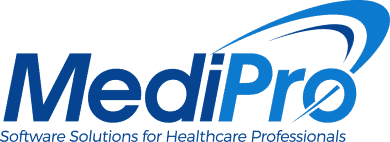If you run a small medical practice, you may be skeptical of the move to Electronic Health Records/Electronic Medical Records. You might think there’s a lot of hype around the topic of Meaningful Use and going digital. If you are still using paper records and limited software to run your office, asking your IT support to cobble together programs to get you by, you may soon find yourself to be alone on a paper island in a sea of EHR/EMR users.
Adoption of basic electronic health record (EHR) systems by office-based physicians increased 21% from 2012 to 2013, according to an issue brief from the National Center for Health Statistics (NCHS), a unit of the Centers for Disease Control and Prevention. Last year, 48.1% of physicians had basic EHRs, versus 39.6% in 2012.
Basic EHR systems, as the NCHS defines them, include functions for patient history and demographics, patient problem lists, physician clinical notes, comprehensive lists of patient medications and allergies, computerized orders for prescriptions, and the ability to view lab and imaging results electronically.
Last year, 78% of office-based physicians used some kind of EHR (basic or otherwise), versus almost 72% in 2012, according to the brief. That means they had some kind of electronic information system used for purposes other than billing.
How Many Practices Have Made the Move to Using EHR/EMR?
The National Center for Health Statistics has been tracking the movement to adoption of electronic health records. As of the end of 2013, 78 percent of office-based physicians had adopted at least some form of EHR system used for more than just billing, but actually for managing patient-practice communications, appointment scheduling, documentation etc. This was an increase of 21 percent from the year 2012.
What Results Are Medical Practices Reporting?
A national survey of over 4500 medical practices reported that the overall assessment of EHR/EMR systems was positive. The positives cited were:
- Time savings in almost all areas – e-prescribing, electronic charting, electronic billing, electronic check in/check out, patient-physician communications all more efficient and faster
- Long term cost savings
- Improved office workflow
- Increased number of patient visits
- Space and supply savings (from switching from paper charting, which requires a lot of time, space and human hours)
- Improved ability to communicate with and work with other medical practices
- Enhanced ability to attract top quality physicians to the practice
- Once attested for Meaningful Use, incentive payments from Medicare/Medicaid were substantial
The negatives cited were:
- The transition to the EHR/EMR was initially burdensome
- Staff resistance to the switch
- Initial costs of EHR/EMR
What If My Practice Doesn’t Want to Attest to Meaningful Use?
Even if you don’t see a lot of patients who use Medicare of Medicaid or you don’t plan on pursuing the Meaningful Use incentive payments, practices are realizing benefits from upgrading to an industry-specific EHR/EMR. Those benefits include:
- Ability to handle coding changes, such as the upcoming ICD-10 changes, with ease
- Inter-practice referrals and communications simplified and streamlined
- Claims filing and billing improved, saving money and time
- Fewer human errors, including costly downcoding and coding errors
Why Not Just Buy Generic Office Workflow Software?
Small practices often think it will be too expensive or painful to invest in an specialty-specific EHR/EMR. Because of this misperception, they buy generic office workflow or billing software and then spend hours and hours trying to modify it to fit their needs. The end result? Software nobody uses – a waste of money and effort.
Specialty-specific EHR/EMR software is tailored to the needs of your medical practice. It’s designed to:
- Improve, not hinder your office workflow
- Comply with all health care industry regulations, including HIPAA requirements
- Simply the most complicated parts of your practice, completely replacing paper charts and antiquated forms of documentation and communication
Let MediPro, Inc. Help
You’ve probably already tried to research the best EHR/EMR for your practice and have found out there are multiple options out there. The possibilities can be overwhelming, especially since you’ve probably already figured out that a lot of those low cost options are really generic, clunky software systems that are not really going to save you time and money in the long run.
MediPro, Inc. can help you determine what system best suits your medical practice. We’ve worked with everything from one-physician medical practices to larger groups. Podiatrists, chiropractors, pediatricians, obstetricians, medical centers…we’ve seen it all. Schedule a demo or contact us to get personalized information via our contact form. We’ll make sure you get the right system, at a price your office can afford.
